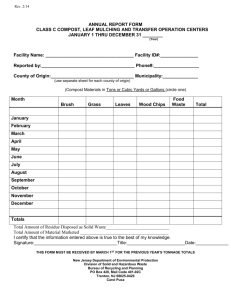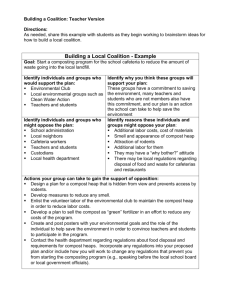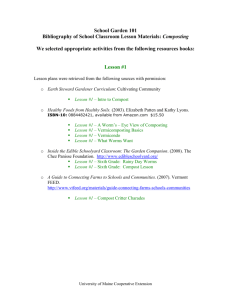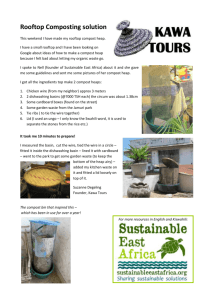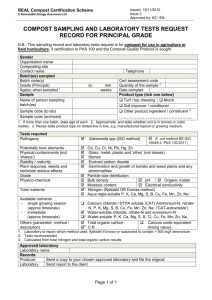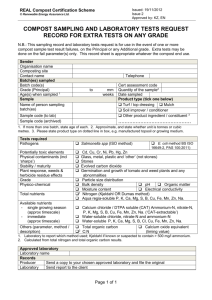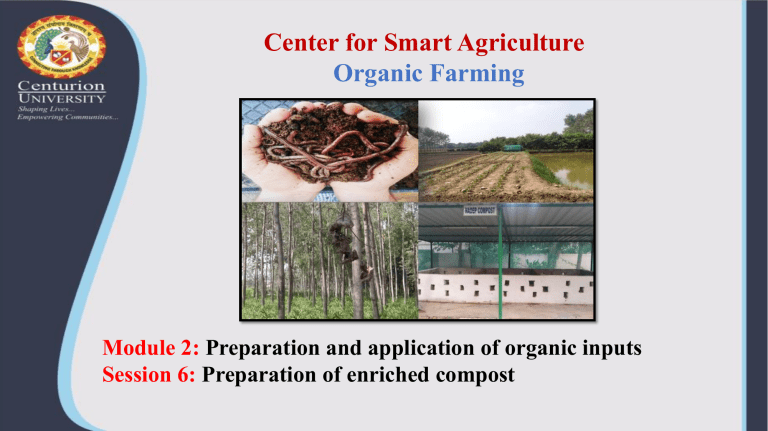
Center for Smart Agriculture Organic Farming Module 2: Preparation and application of organic inputs Session 6: Preparation of enriched compost Compost Composting: Composting is the natural process of 'rotting' or decomposition of organic matter by microorganisms under controlled conditions. Compost: A mass of rotted organic matter made from waste is called compost Importance of enriched compost Composts are bulky in nature with low analytical value and having no definite composition. Therefore, supply of nutrients to crops by only composts is difficult and it can be done if composts are enriched nutritionally. The nutrient content of composts can be enriched by mixing additives which may be of bio origin and thus enriched composts can be made for using in organic farming. A phospho-compost, thus, can be developed using phosphate solubilizing microorganisms, namely, Aspergillus awamori, Pseudomonas straita and Bacillus megaterium; rock phosphate and organic-wastes to increase the nutritive value compared to traditional compost For the production of one tonne of phosphorous-compost following ingredients are required: Organic/ vegetable wastes/straw : 1900 kg Cow-dung (dry weight basis) : 200 kg Rock phosphate (18% P2O5) : 250 kg Bio-inoculants : 400ml liquid cultures (Aspergillus awamori, Pseudomonas straita and Bacillus megaterium) Method of preparation: At the bottom of the pit, hard, woody materials such as sticks, bamboo sticks etc. of 15 cm thick and 3 m width and 3 m length has to be kept. Different organic wastes are to be placed to a thickness of 30 cm over the base woody material. Then the slurry prepared by mixing cow dung and rock phosphate should be sprinkled over the crop residues to moisten the material. Another layer of crop residue can be given after and moistened it with slurry. (Contd..) Heaping of crop residue (30 cm) and slurry will be continued until the heap is 1.5 m high. Water can be added to the heap so that moisture remains about 60 to 70%. Then the heap should be covered soil or polythene sheet and mixed the materials after 15 days. Generally, two turnings are given after 30 & 45 days. Sufficient water can be added at each turning to maintain the moisture content about 60-70%. Ultimately the compost becomes ready for field application within 90-100 days period. Advanatges: -Improves nutrient values of compost -Can help in reducing nutrient deficiency in crop and soil Thank You

